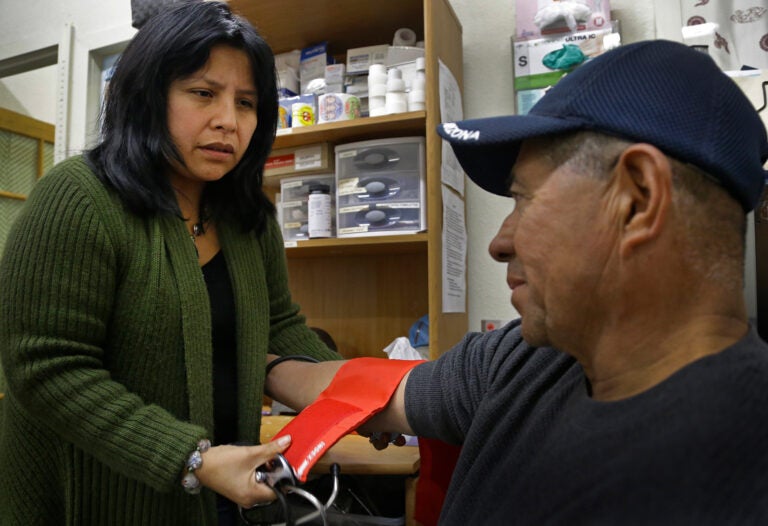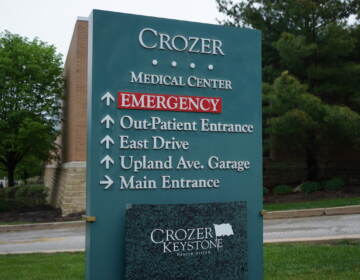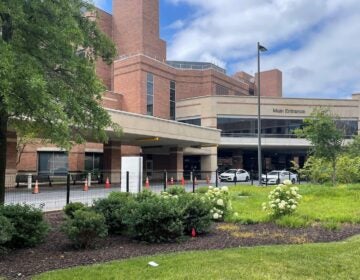Lowering Barriers to Care
We explore some of the biggest barriers America’s vulnerable populations face to accessing health care, and how — and whether — they can be overcome.
Listen 50:31
Laura Lopez, left, checks the blood pressure of Santos Aguilar at the Street Level Health Project in Oakland, Calif. (AP file Photo/Ben Margot)
Lots of things can get in the way of taking care of your health, catching medical issues early on, and getting treatment. Navigating insurance woes, trouble scheduling appointments, big medical bills — but also broader issues like lack of access, distrust in the medical system, and language barriers can stand in the way of patient care. On this episode, we’ll take a look at barriers to health care — especially for America’s most vulnerable populations — and explore potential solutions. We hear stories about a new initiative to screen for colorectal cancer, how AI is helping to bridge language divides, and a recent push to institute screenings for the forgotten sense.
ALSO HEARD:
- It’s a kind of rite of passage for those entering middle age: the dreaded colonoscopy. And with good reason — colorectal cancers are one of the most common, and the deadliest, cancers in the U.S. That’s especially true for Black Americans, who suffer the highest rates of colorectal cancer, and yet get the fewest screenings. But, as Nicole Leonard reports, a team of physicians at Temple University Hospital think they may have found a solution — one that moves screenings from the hospital into the home.
- For America’s growing number of non-English speakers, medical interpreters are an essential part of the health care system, specially trained to accurately translate important information. There’s just one problem — there aren’t enough of them. We talk with computer scientist Niloufar Salehi about how artificial intelligence could soon help fill this growing need.
- Insurance coverage is notoriously complicated — and for Americans who are enrolled in two insurance programs, Medicare and Medicaid, that means two ID cards, and two sets of rules. This population, often called “duals,” are among the poorest and sickest patients in the country. We hear an excerpt from the podcast “Tradeoffs” about one family’s struggle to navigate a labyrinth of difficult rules, and talk with host Dan Gorenstein about what changes could help.
Segments from this episode
WHYY is your source for fact-based, in-depth journalism and information. As a nonprofit organization, we rely on financial support from readers like you. Please give today.






